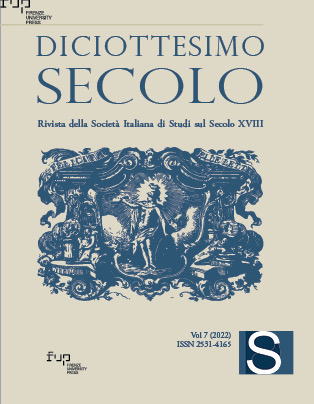A centuries-long enslavement? Gender and Islam in the Hispanic Enlightenment: an exploratory approach
Published 2022-11-18
Keywords
- Gender,
- Islam,
- Orientalism,
- Arabic studies,
- Enlightenment
How to Cite
Funding data
-
European Research Council
Grant numbers AdG-2017-787015
Abstract
This article explores the role of gender in the construction of images of Islam in the Hispanic Enlightenment. Although Spanish Arabism has been largely neglected in international historiography, research has proved that Spanish erudites since the 16th century had an important role in the study of the Arabic language and sources; also, interest in the Islamic world was popularized via fictional works and coverage in newspapers and journals. Spain is a distinctive and particularly interesting case within European Orientalism because Islam was part of its history and cultural legacy and a close neighbour in the north of Africa, but also because orientalization of the country by European travellers and philosophers – not yet as intense as during Romanticism – had already started, notably in relation to gender. If the Enlightenment developed a less aggressive, more open – although not devoid of stereotypes – vision of Islam, is the same true in the Hispanic world? To what extent was the tendency to bracket together the Hispanic and the Islamic either accepted or challenged by Spanish and creole intellectuals? Did the country’s own Islamic past help create more nuanced visions of the «Orient» or did it instead lead to highlighting the contrasts in order to claim a place for Spain in European modernity? This article will address in an exploratory way these questions, seldom considered from the point of view of gender, through an analysis of learned works and reformist essays.


